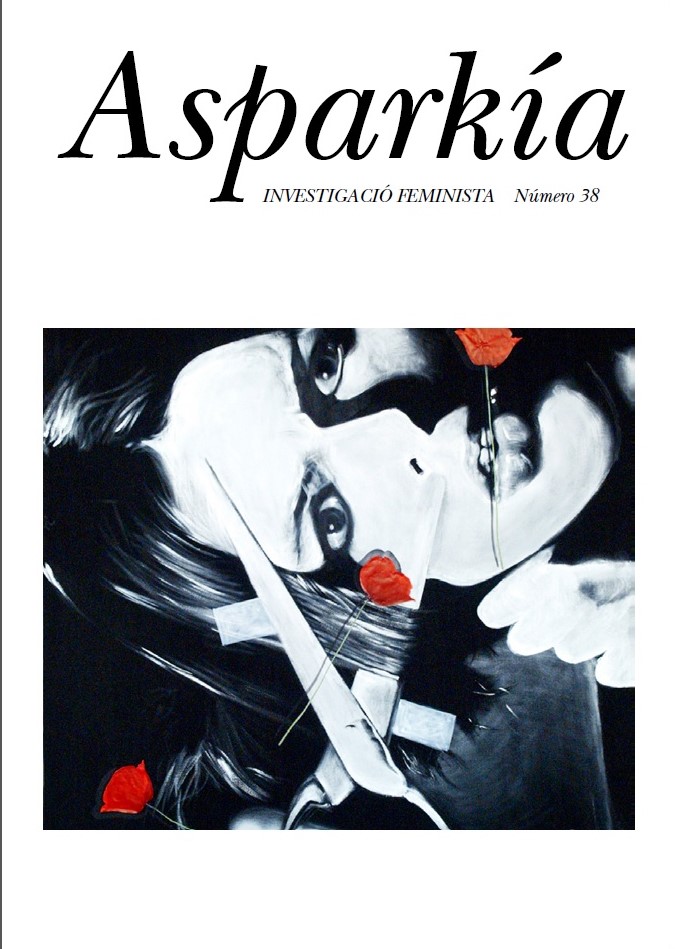The (De)construction of Gender in Political Fiction: The Borgen Case
Main Article Content
Abstract
This investigation focuses, from a gender perspective, on the representation of the female politicians on fiction series, specifically in Borgen (2010-2013). In order to analyze it, a review of the gender stereotypes that habitually characterise female politicians in fiction is carried out through a qualitative methodology. This study also check if the Borgen series keep or destroy these stereotypes. The results of the research demonstrate that Borgen presents a transgression of gender in four different areas: conciliation of the public-private life, personality features, thematic competence and leadership. Therefore the thesis suggests a roadmap for the representation of women in the media, as well as a realization of a political communication from a gender perspective.
Downloads
Article Details
References
BELMONTE AROCHA, Jorge, y GUILLAMÓN CARRASCO, Silvia (2008). «Co-educar la mirada contra los estereotipos de género en TV». Disponible en http://repositori.uji.es/xmlui/handle/10234/20133 (Fecha de consulta 15/06/2020).
CASTELLS, Manuel (2008). «Comunicación, poder y contrapoder en la sociedad red (I). Los medios y la política» en Telos, 74(1-19).
FERNÁNDEZ GARCÍA, Nuria (2010). «Framing Hillary Clinton en la Prensa Española: ¿Candidata o mujer?» en Observatorio (OBS*), 4(3).
GALÁN FAJARDO, Elena (2007) «Construcción de género y ficción televisiva en España» en Comunicar: Revista científica iberoamericana de comunicación y educación, (28), 229-236.
GARCÍA BEAUDOUX, Virginia (2014). «Influencia de la televisión en la creación de estereotipos de género y en la percepción social del liderazgo femenino. La importancia de la táctica de reencuadre para el cambio social» en Ciencia política, 9(18), 20.
HARALDSSON, Amanda y WÄNGNERUD, Lena (2019). «The effect of media sexism on women’s political ambition: evidence from a worldwide study» en Feminist Media Studies, 19:4, 525-541, DOI: 10.1080/14680777.2018.1468797.
HORMIGOS VAQUERO, Montserrat y BALLESTER BUIGUES, Irene (2020). «La mirada feminista ante el espejo publicitario» en Asparkía. Investigació Feminista. Nº36, pp. 11-13.
LOIS, Marta & ALONSO, Alba (2014). Ciencia política con perspectiva de género. Madrid: Akal.
PADILLA CASTILLO, Graciela y POPELKA SOSA SÁNCHEZ, Roxana. (2018) «Ruptura de los estereotipos de género en la ficción televisiva sobre el poder político: el caso Borgen» en Revista de Comunicación ‘Vivat Academia’, (145).
REVERTER-BAÑÓN, Sonia y MEDINA-VICENT, María. (2017). «Intersecciones entre liderazgo y feminismo» en Dossiers feministes, (22), 5-12.
SIERRA CABALLERO, Francisco. (2017) «Comunicación y Género. Agendas y cultura de investigación» en Chasqui. Revista Latinoamericana de Comunicación, (135), 09-14.
VARELA, Nuria. (2005). Feminismo para principiantes, Barcelona: Penguin Random House Grupo Editorial.


